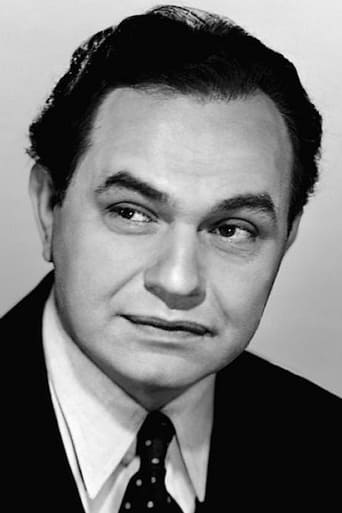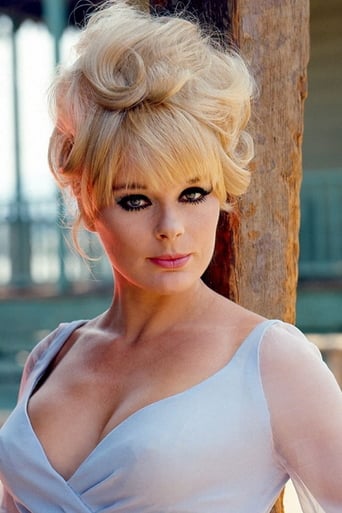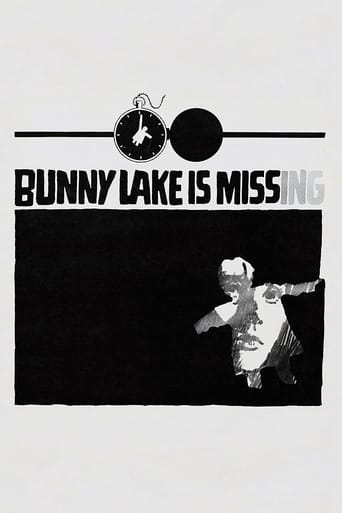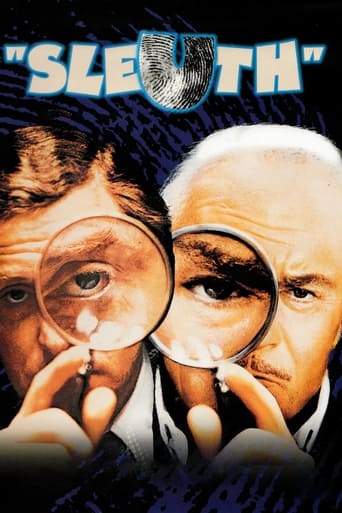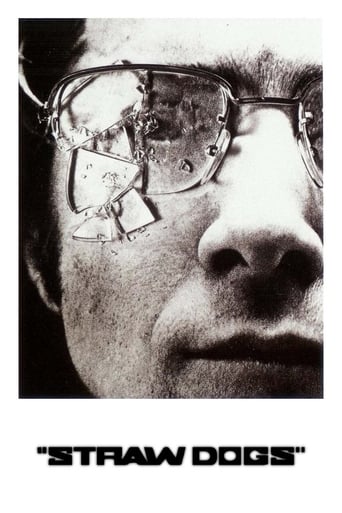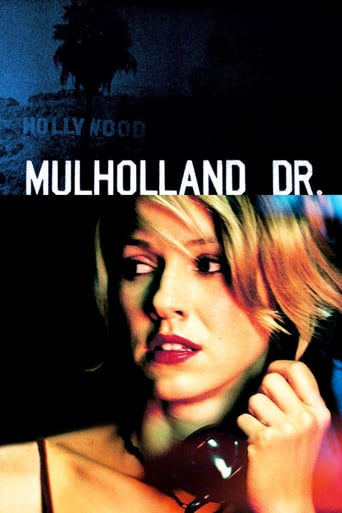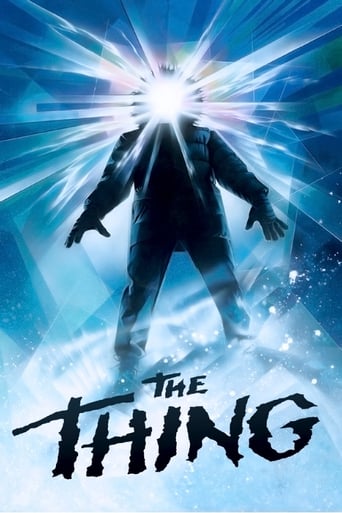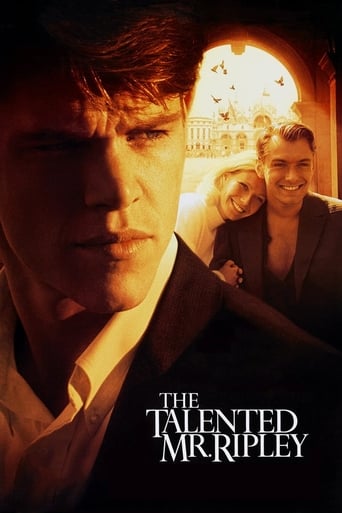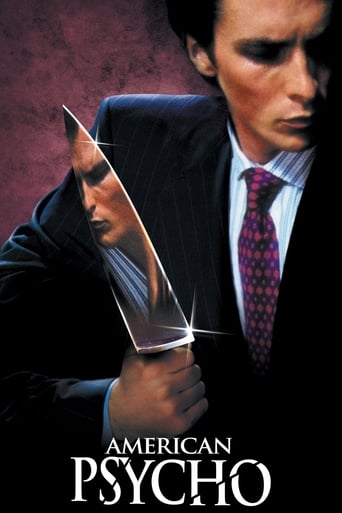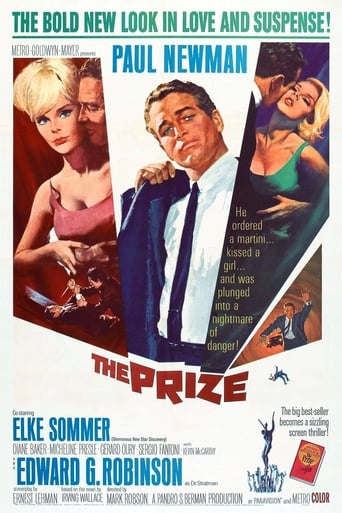
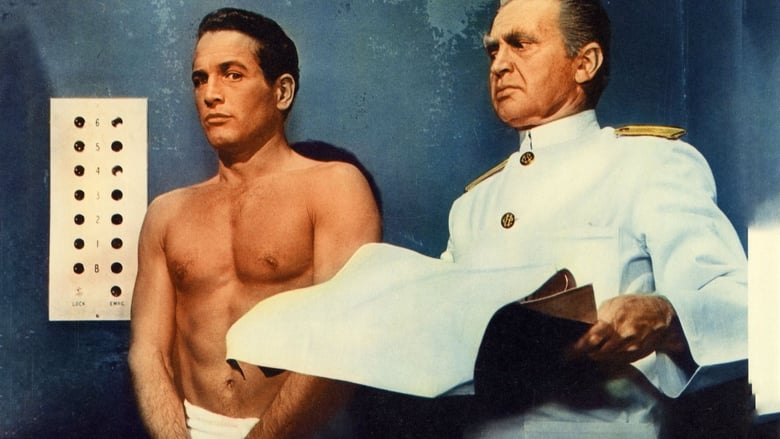
The Prize (1963)
A group of Nobel laureates descends on Stockholm to accept their awards. Among them is American novelist Andrew Craig, a former literary luminary now writing pulp detective stories to earn a living. Craig, who is infamous for his drinking and womanizing, formulates a wild theory that physics prize winner Dr. Max Stratman has been replaced by an impostor, embroiling Craig and his chaperone in a Cold War kidnapping plot.
Watch Trailer
Cast
Similar titles
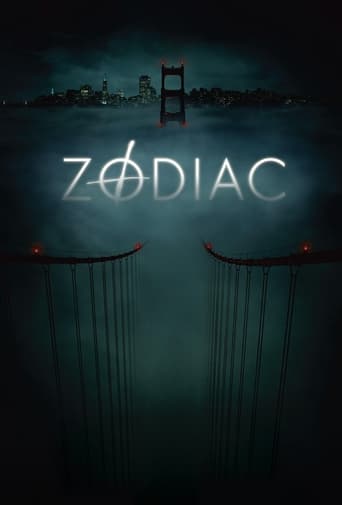
Reviews
Best movie of this year hands down!
Very very predictable, including the post credit scene !!!
By the time the dramatic fireworks start popping off, each one feels earned.
The movie really just wants to entertain people.
In Sweden to be awarded the Nobel Prize in literature, author Andrew Craig (Paul Newman) jokes that fellow laureate Dr. Max Stratman (Edward G. Robinson) might be an impostor and no one would know. Turns out the joke is closer to reality than Craig realizes as Dr. Stratman has been replaced by a Communist lookalike. Craig becomes suspicious of the impostor and soon his suspicions put his life in danger.Mark Robson's enjoyable spy movie has Hitchcockian elements but doesn't quite reach the level of the master. The pieces are there, though. Newman's his usual charming self and has good chemistry with Elke Sommer and Diane Baker. Robinson's always great. It's a little overlong and the first hour could use a trim. Hitchcock would have jumped into the main plot a lot sooner, I think. But that's just one of the many differences between a decent director and a great one.
Ernest Lehman, the writer of Alfred Hitchcock's "North By Northwest", was a terrific choice to adapt this Irving Wallace suspense tale...and though director Mark Robson may never be confused with Hitchcock, the overall look, pacing, and feel of "The Prize" are quite similar to "Northwest". Paul Newman plays a hard-drinking heel, a once-promising but now cynical, womanizing writer who has turned to detective stories to pay the bills; he nevertheless has been chosen as one of the recipients of the Nobel Prize for his literature, and sobers up just in time for some exciting adventures in Stockholm. He suspects that one of the other Prize winners is a ringer, with no one else on-screen in his corner (just Foreign Ministry worker Elke Sommer in his arms!). A handsome piece of work, the film does have minor deficiencies: the opening introductions are amusing but a bit pedantic, while an overlong sequence with Newman escaping killers by hiding out at a nudist convention lands with a thud (Cary Grant may have been able to pull this off, but Newman is still too callow). Supporting cast is first-rate, though Lehman tries to have it both ways with Diane Baker's mysterious character, and one ends up not understanding much about her actions or motivations. Newman, shuffling along with a bemused smile, has some nice moments with Sommer, while Edward G. Robinson does a fantastic actors' turn playing two sides of the coin. **1/2 from ****
An enjoyable comic thriller filled with familiar incidents. If, in "North by Northwest," Cary Grant is pursued in an open field by an airplane, here Paul Newman is chased back and forth by a murderous car on a long bridge. If, in the first, Grant must make himself enough of an annoyance in an auction to be rescued by the cops, here Newman must do the same at a meeting of nudists in a gymnasium. It's not too surprising since both films were written by the same man, Ernest Lehman. You can REPEAT yourself but you can't PLAGIARIZE yourself. Lehman even throws in an image from a Hitchcock number he had nothing to do with. In "Saboteur", the heavy falls from the Statue of Liberty. Here he falls from a rooftop in Stockholm and is impaled on the sword of a huge statue below. And the substitution of the evil Robinson for the good Robinson is from Hitchcock's "Foreign Correspondent."Newman is a former literary star, invited to Stockholm to accept a Nobel Prize, who has lost his willingness to try and now devotes himself to writing detective novels under a nom de plume and to drinking martini after martini. As far as the alcoholism goes, though, he remarks near the beginning, "Ewww. This is my third martini and I haven't even had breakfast yet," so he retains his amateur standing.Anyway, the booze business is dropped once he's swept up into a Cold War plot to substitute a faux scientist, a twin of Edward G. Robinson, who is a benign American scientist. At the awards ceremony, the Soviet ringer plans to make a speech condemning free enterprise, capitalism, the exploitation of the working class, the decadence of the West, miniskirts, shaved legs, hair mousse for men, electronic fussball, and Yosemite Sam. The genuine Robinson has been kidnapped and the sinister Robinson has taken his place. The difference between the two is nicely done -- mostly a matter of having the good Eddie smiling weakly and the bad Eddie scowling and sounding like Little Caesar in retirement. Make up has added darker, thicker eyebrows to the evildoer.It is Newman's self-appointed job to unravel the plot and restore the correct Robinson to his justified place on the dais at the ceremony. He will be helped by his toothsome chaperone, Elke Sommer, whom he squeezes so vigorously at one point that she complains he is breaking her "rips", something any normal man would enjoy doing.The inquiry takes Newman through myriad Swedish settings, from grand parties at the royal palace, through filthy rusting ships, to hotels in which he must run through the corridors wearing only a towel around his waste -- everybody's favorite nightmare.The direction by Mark Robson is professional and so are the performances. Paul Newman is a bit of a surprise. He's never been particularly good outside of dramas but he's quite effective here. Watch him try to explain to the skeptical Stockholm police that he has discovered the body of a murder victim and add that the body has now disappeared. Oh, the body has disappeared? Newman looks momentarily taken aback as he realizes how ludicrous this sounds, hesitates, then plunges determinedly ahead -- "Well . . . yes!" Cary Grant would have walked away with this part but Newman carries the ball well.The whole thing is a wanton ripoff of Hitchcock but it's so amiable and so funny in its characters, situations, and wisecracks, that it doesn't really matter. You'll probably enjoy it.
This film is only one of two (the other being "Charade") that is at once an homage to and a clone of a Hitchcock film. The similarities with "North by Northwest" are troubling and too numerous to mention, Paul Newman acting as a glib but younger Cary Grant, Elke Sommer as the "Hitchcock trademark icy blonde beauty", a turn at a nudist convention substituting for the scene at the auctioneer's, a chase by a car on a bridge replacing the crop-duster scene, etc., etc., down to the final dizzying climax. What makes it fascinating is that the writing (by the same Ernest Lehman who scripted "North by Northwest"), the international casting, the action melodrama pacing (borrowed from "The Adventures of Tintin"), the sexual innuendos, the music by a young Jerry Goldsmith (channelling Bernard Hermann's celebrated orchestral stingers over a John Barry-like jazz background) and the expert direction and editing by Mark Robson (an alumni, like Robert Wise, of the Val Lewton outfit at RKO) all make it possibly better than the original. It is certainly entertaining and chock-full of wonderfully spirited performances by the likes of Micheline Presle and even that other Val Lewton alumni Anna Lee in a small role. It is interesting to note that Hitchcock was himself inspired by this Cold War scenario for his own subsequent "Torn Curtain" - starring Paul Newman, but without the heavy sexual innuendos. I have only one reservation: "stunt" dubbing Edward G. Robinson' voice in a crucial scene about the magic of acting was a serious mistake. He certainly could have done it on his own.Long overdue on DVD. Maybe one day on Blu-Ray... In the meantime, thank God there's TCM! (And am I the only one who recognizes Wendy Hiller as Ms. Lee's silent companion in the hotel's lobby?)

